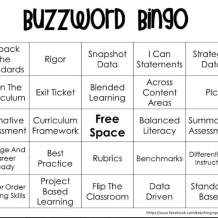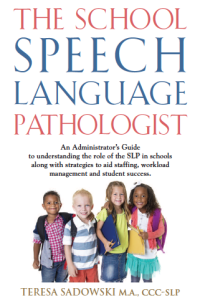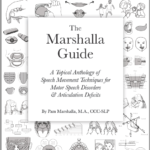Buzzword Book Give-a-way

Hearing about which buzzwords bother you the most was a lot of fun. Every single one of the words submitted were irritating in their own unique way. I chose two that I thought were the best worse buzzwords.
The first buzz word selected was submitted by Patricia. Her word was “rigor” and for the obvious reason, it makes Pat think of death. I have to admit I also flash to an episode of Law and Order, with the pathologist saying, “TheThe body was in full rigor” every time I hear that word used in school. If they are going to use the word ‘rigor” in education why just use the word “rigorous” it makes more sense.
dictionary.com lists the following meanings for the word “rigor”
noun
1. Strictness, severity, or harshness, as in dealing with people.
2. The full or extreme severity of laws, rules, etc.
3. Severity of living conditions; hardship; austerity:
The rigor of wartime existence.
4. A severe or harsh act, circumstance, etc.
5. Scrupulous or inflexible accuracy or adherence:
The logical rigor of mathematics.
6. Severity of weather or climate or an instance of this:
The rigors of winter.
7. Pathology. A sudden coldness, as that preceding certain fevers; chill.
8. Physiology. A state of rigidity in muscle tissues during which they are unable to respond to stimuli due to the coagulation of muscle protein.
9. Obsolete. stiffness or rigidity.
The synonyms listed for ‘rigor” are even worse
inflexibility, stringency. cruelty (these are 3 words I always like to associate with education)
I understand rigorous curriculum (don’t like it but I get it) but I started thinking this word must mean something else in education. After a little research I found this page in The Glossary of Educational Reform defining “rigor”. Basically Educational Reform has redefined the word and made it way more confusing. I predict this buzz word will quit buzzing in a few years unless Webster’s adds it maybe as a new slang in 2016.
Kim suggested the word “Modify.” I chose “modify” because of her reason for disliking “modify” and because of my own personal experiences with this buzz word. Kim wrote, “Modify in theory is fabulous. However, in practice this buzz word often lacks depth in its application, is laden with inconsistency & often does not live up to its full intended potential.” Couldn’t have said it better myself. We write and suggest modifications all the time but who is responsible for modifications and who monitors them is a whole other story.
“Modify” became a big buzz right after “RTI” (response to intervention-a buzz word in itself and worthy of its own article) came into play. I remember the confusion between Modifications and Accommodations. I also remember our team leader having to present several times on the differences between the two. If I had to sit through that lecture one more time I might have started pulling my hair out. Now another buzz word submitted was “differentiated instructions” which in my mind is the same as modifications (but I bet it isn’t). I tried looking it up in that glossary mentioned above but it wasn’t there.
The other buzz words mention also deserve comment as runners-up.
Kudos-Yeah that gets said a lot. It’s one of those word that if you hear too much there is usually something wrong or something being nervously covered up. It ranks right up there with everyone talking about how nice, cute or sweet a child it. In meetings that’s code for you have a child who has something going on.
Servicing-I think I might be guilty of this one but not with parents just with staff. As Shannon suggests, this is a word that gets misused. “We are not “servicing” children, we provide a service. Sheesh- sounds like we are changing a transmission, not providing speech therapy!” to quote Shannon.
Using “no longer eligible” rather than “dismissing” from therapy is another one that makes us sound high faulting to parents. I think it must be in the team leader training because students have to be eligible for services. I think they are taught to use that word. However, there are some situations where that language might need to be used because most of our language students will never develop strong language skills.
Pre-determining Services-This was actually a very good one that leads to another question. Why are school SLP’s in many areas not allowed to diagnose or recommend specific direct speech and language services in their reports? It’s frustrating that a lot of the time the expertise of the school based SLP is not respected, welcomed or even considered when determining programming. (I’m keeping this one for a future article.)
Thank you all for your submissions. Patricia and Kim will be receiving copies of my book.The School Speech Lan guage Pathologist, An administrators guide to understanding the role of the SLP in schools along with strategies to aid staffing, workload management and student success.
guage Pathologist, An administrators guide to understanding the role of the SLP in schools along with strategies to aid staffing, workload management and student success.
Keep the buzz word coming. Some are just so absurd. Luckily we don’t have to listen to many for long since they come and go so quickly.







